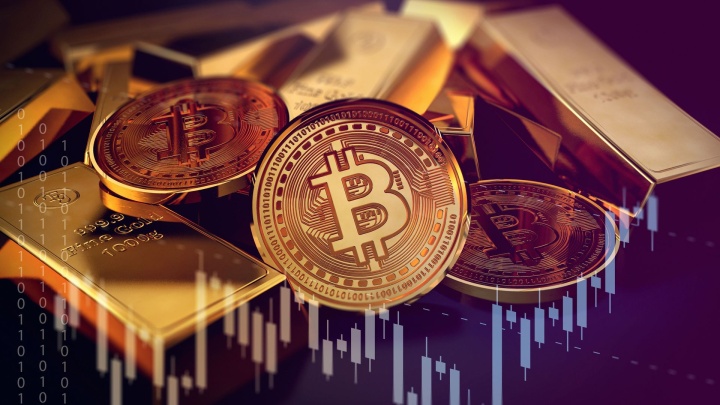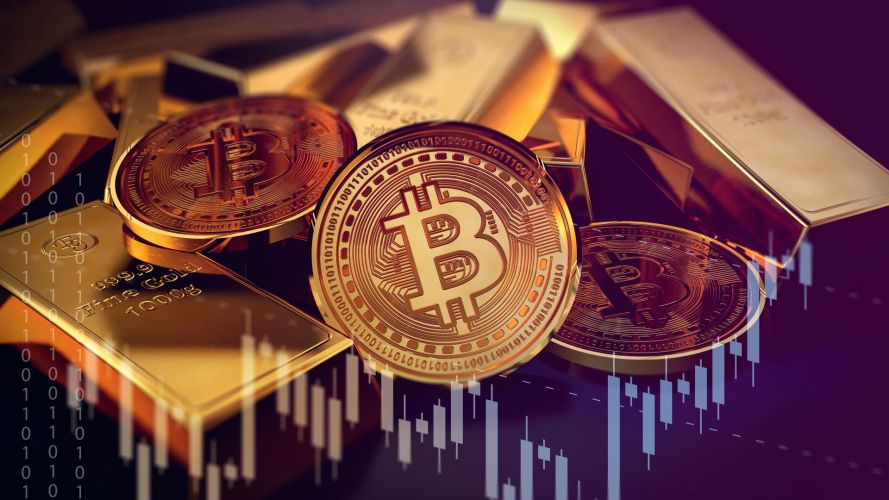
Are investors swapping their gold for Bitcoin as inflation fears rise?

For months now, economists have warned consumers that inflation will be a challenging monster to slay, that that last push to get prices below 2% will be a hard mile, or a tough row to hoe; take your pick of analogies or metaphors because they are all true.
This past week, we saw both consumer and producer prices rise more than expected, and while prices have come down from their 2022 peaks, we are still a long way from the Federal Reserve’s target of 2%.
Gold and silver prices dropped to multi-month lows, testing critical support at $2,000 and $22 an ounce, respectively. Investors continue to flee the gold market as higher-for-longer interest rates support higher bond yields and a stronger U.S. dollar.
Instead of gold, investors continue to push equities to record highs, and they also see new opportunities in Bitcoin. This past week, Kitco’s Jordan Finneseth noted that so far this year, more than $3 billion has flowed out of global gold-backed exchange-traded products. At the same time, the newly approved Bitcoin ETFs have seen total inflows of $4.115 billion.
Finneseth noted that with inflows of $4 billion, the cryptocurrency ETFs achieved in one month what took the gold market two years.
However, even in this difficult environment, we still must acknowledge the underlying strength of the precious metals market.
Despite the selling pressure, the precious metals were able to hold critical support levels. Silver, in particular, has rallied 7% from its lows earlier this week. Gold and silver may not be attractive assets as the Federal Reserve maintains its aggressive monetary policy stance; however, very few investors are actively shorting these assets.
Along with the inflation threat, fears of a recession have not completely disappeared; at the same time, there is enough geopolitical uncertainty to maintain a robust safe-haven bid in gold.
Let’s also not forget that a healthy physical gold market provides some price support. According to the National Retailers Federation, U.S. consumers were expected to spend a record $6.4 billion in jewelry for this year’s Valentine's Day. Jewelry purchases represented a significant portion of the $25.8 billion expected to be spent on gifts ahead of Feb. 14.
Meanwhile, China continues to assert its dominance in the gold market. According to a report from the World Gold Council, China’s gold market set all-time highs in several sectors in January. The WGC noted that 271 tonnes of gold was withdrawn from the Shanghai Gold Exchange last month, the busiest January on record and the third-biggest in the exchange’s entire history. Total holdings in Chinese-listed gold ETFs hit a record high last month At the same time, the People’s Bank of China continued to buy gold for the 15th consecutive month.
Despite the selling pressure in the gold market, there are some significant pillars of strength, and for many analysts, buying on dips is seen as a solid tactical investment.
Kitco Media
Neils Christensen
Tim Moseley
